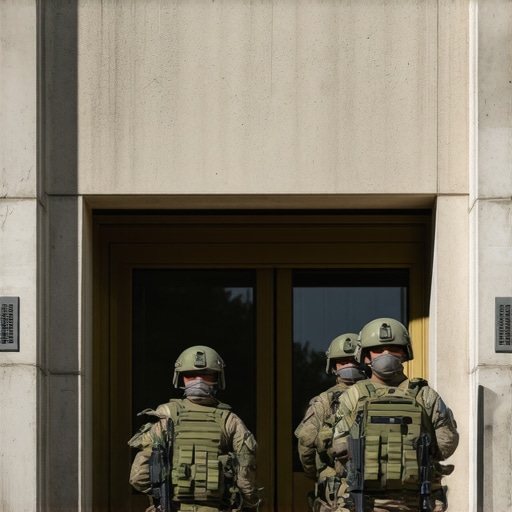A federal court ruling has declared that former President Donald Trump exceeded legal boundaries when deploying National Guard troops and U.S. Marines to suppress protests related to immigration in Los Angeles. Senior U.S. District Judge Charles R. Breyer emphasized that such actions violated the Posse Comitatus Act of 1878, which restricts military involvement in domestic law enforcement activities.
The decision marks a significant legal setback for Trump’s efforts to increase military involvement in city policing, following similar deployments in Washington, D.C., and Los Angeles. The judge’s ruling could hinder future federal efforts to mobilize National Guard units in other cities, amid ongoing discussions about expanding their role in law enforcement under the guise of addressing crime surges.
Breyer, appointed by President Bill Clinton in 1997, highlighted that the deployment of approximately 4,700 service members in a policing capacity was unconstitutional. His 52-page opinion details how military personnel, often shielded by armor, were used to establish perimeters, conduct traffic stops, and manage crowd control — all actions deemed illegal under federal law.
< >
>
The court also expressed concern over the intentions expressed by Trump and Defense Secretary Pete Hegseth to expand the use of National Guard troops for law enforcement nationwide. Breyer warned that such plans could lead to the creation of a de facto national police force, with the President at its helm. This concept echoes historical fears rooted in the colonial era, where resentment of military influence over civil authority was a core grievance leading to American independence.
California Governor Gavin Newsom, a Democrat and plaintiff in the case, praised the ruling as a victory for constitutional governance. He condemned Trump’s attempt to use federal troops as a personal law enforcement force, calling it illegal and authoritarian. “No president is above the law,” Newsom stated, emphasizing that state sovereignty must be respected.
Similarly, Los Angeles Mayor Karen Bass welcomed the decision, asserting that the city would stand firm against federal overreach. “The White House’s attempt to militarize city policing is unlawful,” she declared. “Los Angeles will resist any effort to divide or weaken our community.”
Though the ruling is a blow to Trump’s policies, the administration is expected to pursue an appeal to the Ninth Circuit Court of Appeals. The case’s history includes a previous temporary restraining order issued by Breyer, which was blocked by the appellate court, allowing the federal government to continue its deployment in California pending further review.
As legal battles continue, the broader implications of this case underscore the enduring tension between federal authority and state sovereignty, especially when military power intersects with civilian law enforcement. The outcome could shape the limits of military involvement in domestic affairs for years to come.
